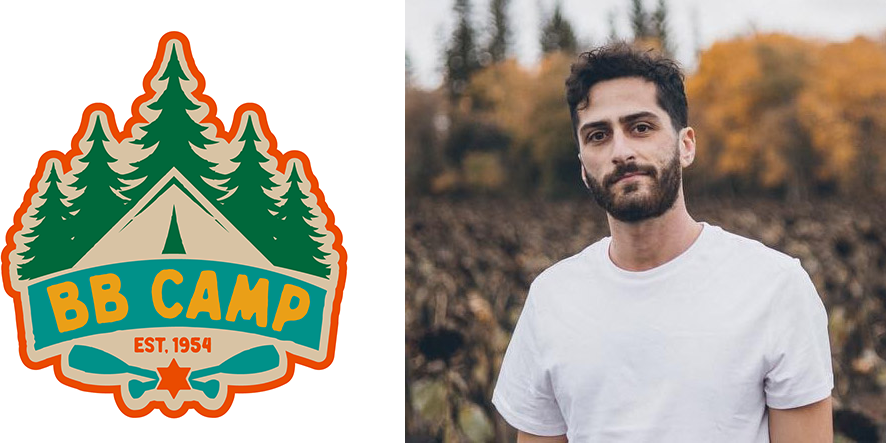Opinion
Ongoing stories about Town Island and lawsuit against parents of Gray Academy students nearing conclusions
 By BERNIE BELLAN
By BERNIE BELLAN
The above two stories on our website have to do with stories whose final resolution is up in the air. Of the two stories, the story about the future of Town Island is of much more importance.
It is of great concern to very many individuals, not merely individuals who have an association with BB Camp. Other organizations, including Camp Stephens and the Nature Conservancy of Canada have joined with the “Friends of Town Island” in attempting to negotiate an outcome to the potential sale of the remainder of Town Island that is still owned by the City of Kenora and which could satisfy all concerned parties, including the City of Kenora itself and those organizations and individuals for whom retaining Town Island in its natural state if of utmost concern.
In writing about this story, I have attempted to be scrupulously fair to all sides. While the future of BB Camp is obviously of huge importance to many readers of this paper, at the same time I have been attempting to present the City of Kenora’s case as well. In instances such as this it is all too easy to cast public officials as villains who are intent on pushing ahead with development plans that could have a hugely negative effect on the interests of those organizations and individuals for whom protecting the environment is of paramount concern.
We see this issue played out on so many different levels all the time. For instance, can the Federal Liberal Government satisfy the concerns of environmentalists while at the same time that it is building a new pipeline across B.C. and now, while also contemplating whether to give the go-ahead to a massive new tar-sands project in Alberta?
How to resolve competing interests without acceding to all the demands of one side or another is a challenge at the best of times, but even more so when it now appears that we are already witnessing the dramatic effects of climate change. It may seem like a tenuous connection, but the fires raging in Australia magnify the impact on any issue that has the least connection to the environment – as does the Town Island story.
Granted, the optics of what the City of Kenora has done by inviting expressions of interest that might lead to the outright development of the last major island in the Lake of the Woods that has remained in a relatively pristine state look bad. Yet, Kenora had been working toward a resolution that would have been satisfactory to all concerned parties, albeit one that would have required the involvement of the Government of Ontario. In Kenora’s defense, the fact that the Ontario government has refused to step in and provide what is really quite an easy solution to this dilemma is more than a little perplexing.
Back in 2014, when BB Camp was negotiating the purchase of 30 acres of Town Island, according to Aaron London the idea of BB Camp purchasing all of Town Island was brought up in discussions with a senior administrator in the City of Kenora. At the time, Kenora’s position was that it preferred to negotiate an exchange of lands with the Province of Ontario whereby Kenora would acquire land equivalent in value to Town Island owned by the province, either in Kenora or adjacent to Kenora. In return, the province would have been expected to place Town Island into a conservancy trust that would leave Town Island in its natural state, free of development.
Unfortunately, while the Province of Ontario did have a program in place to do exactly that kind of land swap, that program was terminated before any kind of deal between Ontario and Kenora could be negotiated.
But, we’re not talking about trading the island of Manhattan for similarly valued land here. In 2014, according to Aaron London, Kenora placed a value of $2.9 million on the rest of Town Island. (BB Camp paid $1.1 million for its portion of Town Island, which is roughly one-sixth of the land area of Town Island, so $2.9 million would have been a fair price to pay for the rest of the island, one would think.) In retrospect, it’s a shame that Kenora didn’t negotiate the sale of the rest of Town Island to BB Camp back in 2014. While nothing now would preclude BB Camp or another not-for-profit group from submitting a proposal to purchase the rest of Town Island, the danger is that a private developer may offer more. However, as I note in my article about the current state of affairs, Kenora now finds itself in a very difficult situation financially. Of course, all governments claim to be under financial pressures, but in Kenora’s case, as my article explains, dealing with the challenges presented by social issues that were not nearly so apparent in 2014 has made the need to find new sources of revenue (beyond simply adding to taxes on an already heavily taxed property base) that much more pressing.
Ultimately, the Province of Ontario holds the key to finding a ready solution to this problem. If the holdup to Ontario’s stepping in is bureaucratic inertia –which is what seems to be at the heart of Ontario’s refusing to provide a solution thus far, then politicians should step in and override the bureaucrats who are holding up a solution.
Yet, we’re in Winnipeg – and hold no sway over anything that goes on in Queen’s Park in Toronto. Others closer to the scene do, however, and I’m glad to see that the Canadian Jewish News (following my suggestion to that paper’s editor, Yoni Goldstein) has run a major piece by former Winnipegger Paul Lungen on the Town Island situation.
We’ve seen how stories like this have played out before. In writing about how the Asper Campus came to be built I noted the decisive role that former Premier Gary Filmon played in getting the former home of the Fort Osborne Barracks into the hands of the Asper Campus Corporation – for a very low price.
Kenora is very far from Toronto and I’m sure it doesn’t take up too much interest for the vast majority of Ontario provincial politicians, but BB Camp alumni are numerous in Toronto. There isn’t much time left to come up with a solution that would see Town Island kept in its natural state for posterity, but short of an “angel” stepping forward with an offer to purchase the island and preserve it in its natural state, Town Island’s future as an unspoiled wilderness area may be doomed.
(Interestingly, it was in 2015 when an “angel” stepped forward with $900,000 to save the Gwen Secter Centre from being sold. Readers may recall that the National Council of Jewish Women, which owned the Gwen Secter Centre building at the time, had said it wanted the money to help fund some sort of “Winnipeg Jewish Recovery and Resource Centre” that would be a home for both Jewish and non-Jewish residents with addiction issues. We haven’t heard much about those plans since then.)
So, we’ll wait and see what happens with Town Island. If there any angels out there – just think: You can have an island renamed in your name and become a hero to BB Camp campers past and present – along with who knows how many other “Friends of Town Island” are out there.
As far as our other local news story on page 1 is concerned – about the lawsuit by the Winnipeg Board of Jewish Education against the parents of three former students at the Gray Academy, it’s hard to believe that a matter which could have been resolved quite easily in Small Claims Court dragged on for over a year in Queen’s Bench Court.
Without delving into the merits of the case, one can only wonder about the thinking that led whoever it was at the WBJE who decided this case needed to be heard in Court of Queen’s Bench rather than Small Claims Court – which is almost always the venue for claims under $10,0000.
We don’t know for certain what Justice Shawn Greenberg may decide when it comes to awarding the WBJE costs but, based on her written judgment, it appears most likely that she will award only $100 to the WBJE in costs. Thus, the likelihood is that the WBJE will end up paying its lawyer $10,000 to obtain a judgement of only a little more than $10,000. Sharp thinking there.

Features
Did the Jewish Federation’s stepping in to force the firing of BB Camp co-executive director Jacob Brodovsky lead to the further alienating of many young Jews from the community?

(June 8, 2024) Introduction: We received the following email from a young Jewish Winnipegger re the BB Camp controversy, which we’ve reported on extensively on this website. We thought it important to post the email as a separate piece rather than as an add-on to an article in which we printed other emails from readers expressing their disappointment at what happened to Jacob Brodovsky, the former co-executive director of BB Camp:
Dear Mr. Bellan,
Thank you for once again cutting through the noise with your April 23rd column, “What the sordid BB Camp affair says about our community.” Your clarity and courage in calling out our rush to judgment and our narrowing definition of “Jewish identity” are deeply appreciated, especially by those of us who feel increasingly alienated in Winnipeg.
I also want to share a troubling observation about one of the loudest voices attacking Jacob Brodovsky: theJ.ca. Their articles—bylines like “Ron East” or “TheJ.ca Staff”—are, in fact, almost entirely generated by artificial intelligence. They contain no verifiable sourcing, frequently hallucinate details, and appear to be little more than a far-right newsletter running smear campaigns under the guise of “journalism.” The entire BB Camp series reads like an AI trained on extremist talking points, regurgitated daily to bully our community into silence.
As a young Jew in Winnipeg, I—and many of my peers—are horrified by the transformation we’re witnessing. What was once a warm, progressive community is now dominated by:
Bigots and Bullies: Parents threatening to pull their kids unless the camp bows to extremist demands.
Florida-style Republican Judaism: A narrow, intolerant ideology portrayed as the only “true” Jewishness.
Collapsing Leadership: Our Jewish Federation leaders, including Jeff Lieberman, have shown they lack the vision or backbone to navigate this crisis.
We stand at a dangerous inflection point. Our community is on the verge of a total and irreversible fascist takeover—an outcome no amount of regret or retrospective apologies can undo.
Please consider reading firsthand accounts from community members who have bravely spoken out:
I know this letter is anonymous and won’t be published, but I hope you see it as proof that many of us are desperate for ethical, forward-looking leadership. Thank you again for using your platform to remind us what Jewish community should mean: diversity of thought, compassion for all people, and the moral courage to call out extremism—no matter where it comes from.
This was NEVER a community of far-right Israelis. This is a shame beyond words.
With gratitude and urgency,
A Concerned Young Jew in Winnipeg
Post script: We had heard from many different sources (who all asked to remain anonymous) that the Jewish Federation’s decision to force the BB Camp board to fire Jacob Brodovsky came as a result of pressure from one or more big donors to the Combined Jewish Appeal. We sent an email to Jeff Lieberman, asking Jeff whether the Jewish Federation’s decision to force the resignation of Jacob Brodovsky as co-executive director of BB Camp came as a result of a donor (or donors) to the Combined Jewish Appeal threatening to withdraw their donation(s) this year unless Jacob were fired. I don’t think anyone would be surprised to learn that Jeff did not bother responding to my request for information.
The Jewish Federation used to advertise elections to its board in The Jewish Post & News for many years, but no longer does so (in the Jewish Post). Instead, it submits a slate of new appointees to its board to members of the current board to be rubber stamped. Is it any surprise that the donors who contribute the most money call the shots for the Federation (which is as its always been. The only difference is the Jewish Federation and the Winnipeg Jewish Community Council before it used to operate with a patina of democracy. Sadly, that is no longer the case.)
We would urge anyone on the Federation board who could give information about what led the board to force the resignation of Jacob Brodovsky to contact us. We would give full anonymity, as we have to the writer of the above letter.
-Bernie Bellan
Local News
Is It Alberta’s Turn to Regulate Online Gambling? Looking at the Possibilities

Online gambling and betting in Canada is booming, with each province allowed to regulate its own space. Ontario, Canada’s most populated province, turned two this year after leading the way in April 2022. In what should motivate Alberta and other provinces, Ontario is already reaping the rewards, generating $100 million annually in gambling revenue. Will the local administration in Alberta do what is needed?
Talks have been rife that Alberta is considering going the Ontario way by having an open-licensing system. In July 2023, the minister for Service Alberta and Red Tape Reduction, Dale Nally, issued a mandate to make this province a hub of online sports betting and gambling.
Alberta Premier Danielle Smith recently asked Nally to cooperate with indigenous partners and other stakeholders to develop an online gaming strategy. The main focus will be on revenue generation and responsible gambling. In light of this, Nally said Alberta’s primary focus is becoming a “leading hub for iGaming” with streamlined regulations and low corporate taxes. Such conditions should position Alberta to become a leading iGaming destination.
A few weeks ago, the minister attended the ICE international gaming conference held in London. Together with Ontario’s Attorney General, Doug Downey, and other stakeholders, Nally participated in a roundtable discussion regarding the status of iGaming in Canada. CDC Gaming Reports also revealed that the discussion highlighted the success of iGaming in Ontario and how Alberta can emulate this success story.
Looking into the Alberta Budget 2024, it’s evident that state monopoly could soon give way to Canadian casinos to thrive in the province. Alberta took the first baby steps towards a more liberal gambling sector after setting aside $1 million for gambling. This budget will support the looming review of the Gaming, Liquor, and Cannabis Act and supporting Regulation. The idea is to review the entire regulatory framework to find more funding ways for Alberta charities and community projects.
Major operators like BetMGM, PointsBet, and PokerStars have since hired lobbyists to ensure commercial operators become a reality in Alberta. Speaking to investors and industry analysts in March this year, PointsBet CEO Sam Swanell tipped Alberta and British Columbia to legalize online betting soon. He noted that this could provide the much-needed expansion of that TAM.
Alberta is yet to take full advantage of online gambling despite being the country’s fourth-largest province, with around 4.3 million people. Smaller markets in North America, such as West Virginia and Connecticut, are already benefiting from commercialized online gambling. The good news is that noises about legal online gambling are getting louder in Alberta. It’s just a matter of when the government will make the announcement.
What Next for Online Gambling and Betting in Alberta?
Including a $1 million gambling review budget is definitely a step in the right direction. However, there’s still much to do to end Alberta’s long-standing gambling status quo. But at least the budget opens the door for further discussions and reforms regarding iGaming in Alberta. That discussion has been underway, although the momentum has increased in the last year or so.
As it stands, PlayAlberta.ca is the only regulated online gaming platform in Alberta. It’s a government-run website operated by the AGLC (Alberta Gaming Liquor and Cannabis). Besides casino games, this website provides sports betting and lottery-style gaming experiences. The legal sign-up age on PlayAlberta.ca is 18 years.
For Albertans who prefer more gambling freedom, the government doesn’t restrict anyone from joining offshore operators. Most gaming sites operating in Alberta are licensed in Curacao, the UK, and Malta. Compared to PlayAlberta.ca, these websites provide a more extensive variety of games, rewards, and general experience.
In conclusion, it’s just a matter of when Alberta will introduce an open-licensing market. This approach has proved to be a success elsewhere, especially in Ontario. A recent Ipsos report in Ontario revealed that only 13.6% of the residents prefer to gamble on offshore websites. Alberta could soon follow this path, although there’s much work to do to realize this dream.
Opinion
Hamas savages make no distinction between Israeli Jews, Arabs

By MYRON LOVE I remember many years ago attending a presentation by Simon Wiesenthal, the world’s leading Nazi hunter, during which he made the point that the focus of Holocaust education should not be on the number six million – the number of estimated Jews who were murdered – but rather on the 12 million martyrs – including other targeted groups such as the Roma, people who were gay, the mentally and physically handicapped and the many great many Slavic people who were also murdered. After the Jews, the Slavs were next on the list.
By focusing strictly on Germans killing Jews, he observed, it became too easy to make it out to be only Germans versus Jews – thereby making it easier for Holocaust deniers and absolving the other European peoples who were complicit in the killings.
Similarly, while we naturally mourn our Jewish brethren who were so horribly slaughtered on October 7, we need to also bear in mind that Hamas made no distinction in its murderous rampage between Israeli Jews and Israeli Arabs or between Israelis and foreign workers.
In a posting for The Gatestone Institute on November 30, Israeli-Arab journalist Khaled Abu Toameh noted that he Hamas terrorists who attacked Israel on October 7 did not slaughter Jews alone. The terrorists also murdered and kidnapped scores of Muslim citizens of Israel, including members of the Bedouin community. The terrorists’ murder spree made zero distinction between young and old, Muslim and Jew.
“Scores of Arab Israelis were wounded, murdered or taken prisoner,” he reported.
One such brave individual was 23-year-old Awad Darawshe, an Arab-Israeli paramedic who was on duty at the music festival near Kibbutz Re’im, which was among the first locations under attack. When the medical staff on site were ordered to flee, he insisted on remaining behind to treat the wounded.
Abu Toameh suggests that the paramedic thought that because he was Arab, he could reason with the killers. He was murdered nonetheless.
Another courageous Arab-Israeli that the writer noted, 50-year-old Abed al-Rahman Alnasasrah, was murdered by Hamas terrorists when he attempted to rescue people from the music festival. He was married and a father of six children.
Fatima Altallaqat, 35, from the Bedouin village near Ofakim, was murdered while working with her husband near the city of Ofakim in southern Israel. She was a mother of nine children, the eldest nine years old.
Abu Toameh quotes her husband as saying: “We’re a religious Muslim family and she wore the traditional headdress of a devout woman. It is inconceivable they [Hamas terrorists] could not see who was inside [the car]. They were five meters away from her as they passed.”
Forty bullets were fired into her.
Abu Toameh further cites the comments of Suleiman Zayadneh, brother and uncle, respectively, to four of the Arab-Israeli hostages, who describes himself “as proud to be a Palestinian and Muslim”.
‘The people who came to shoot and kill — they know nothing of religion,” the writer quoted Zayadneh as saying. “These [Hamas] people came and killed left and right.”
Abu Toameh went on to reference the words of Nuseir Yassin, a video blogger with 65 million followers. Two days after the massacre, he wrote: “I realized that… to a terrorist invading Israel, all citizens are targets. More than 40 of them [the murdered] are Arabs. Killed by other Arabs. And I do not want to live under a Palestinian government. Which means I only have one home, even if I’m not Jewish: Israel…. So from today forward, I view myself as… Israeli first. Palestinian second. Sometimes it takes a shock like this to see so clearly.”
Abu Toameh reported that “there have been many storie about reciprocal inter-communal generosity and heroism in the aftermath of this national tragedy, and they create hope for the future”.
He quoted a statement by the Darwashe Family:
“We are very proud of Awad’s actions… This is what we would expect from him and what we expect from everyone in our family — to be human, to stay human and to die human.”
Abu Toameh also quoted Ali Alziadna, four of whose family members were kidnapped, as saying that he was “touched by the outpouring of support” by other Israelis.
“People from all over the country have come to hug and support our family,” Alziadna said. “The entire nation is one family now.”
Abu Toameh pointed out that many Arab citizens of Israel serve as IDF officers and policemen, risking their lives for their fellow Israelis. Many are serving at the front lines, saving lives.
Undoubtedly, Abu Toameh suggested, one of the objectives of the Hamas massacre, in addition to slaughtering as many Israelis as possible, was to thwart normalization between Israel and Arab countries, especially Saudi Arabia. Hamas may also have aimed to damage relations between Jews and Arabs inside Israel.
”The terror group was, without doubt, hoping that we would witness another cycle of violence between Jews and Arabs inside Israel, similar to that which erupted in May 2021,’ Abu Toameh posited. “Then, Hamas succeeded in inciting a large number of Arab citizens of Israel to take to the streets and attack their Jewish neighbors and Israeli police officers.
“This time, however, the Arab-Israelis have not heeded the calls by Hamas. One reason is that Arab-Israelis saw, with their own eyes, how Hamas terrorists make no distinction between Jews and Muslims.
“Hamas has repeatedly demonstrated that it cares nothing for the well-being of Arabs and Muslims. From their luxury homes and hotel rooms in the safety of Qatar and Turkey, Hamas leaders give the orders to attack Israel and then sit back and let the world weep over the destruction they wrought upon their own people.
“On October 7,” Abu Toameh concluded, “Hamas metaphorically shot itself in the foot by showing the world, with unfathomably ghoulish pride, by way of Go-Pro cameras and other self-documentation, that it has neither a religious nor a secular-humanist set of values. Perhaps the Palestinians in the Gaza Strip should look at the Arab citizens of Israel and note how they enjoy equal rights, democracy, freedom of speech and a free media. If Palestinians wish to live well, like the Arab-Israelis, this is the time for them to get rid of Hamas and all the terror leaders who, for seven decades, have brought them nothing but one disaster after another.”
It is too bad that so many gullible fools in our Western societies refuse to open their eyes to the truth.